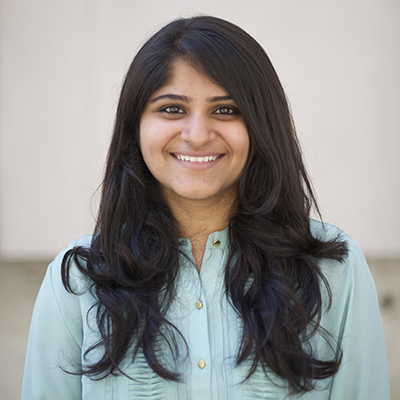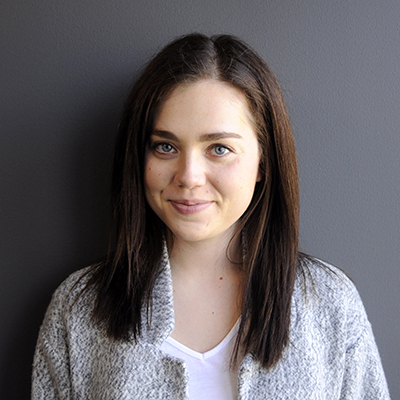Partnership Explores Ecological Conservation Mechanisms and Indigenous Rights
Northwestern Law student research for World Wildlife Fund examines water, land, and Indigenous rights in four countries
Last November, a visit to Northwestern from one of the world’s most renowned conservation organizations has led to the development of an innovative partnership between the two institutions.
A team of international experts from the World Wildlife Fund (WWF) were visiting campus as part of the McCormick School of Engineering’s Dean’s Seminar Series to discuss global sustainable infrastructure deployment. The cross-cutting collaboration that is beginning to take place with various departments and schools within the university is aimed at building stronger communities and a more sustainable planet.
“The growing partnership between Northwestern and WWF leverages the multidisciplinary expertise, networks, and resources of both institutions,” says Demetria Giannisis, Managing Director of the Institute for Sustainability and Energy at Northwestern (ISEN). “By working together, we’re able to develop solutions that meet the needs of both nature and communities in a more holistic way.”
One facet of the partnership involves providing embedded experiential learning opportunities for Northwestern students. This summer, two graduate student interns with very different backgrounds are applying their expertise to WWF’s ongoing global conservation efforts. ISEN recently spoke with Vidushi Dwivedi (McC '18, anticipated) and Hannah Levitt (Medill '17, anticipated) about their work at WWF and how it relates to their broader experience at Northwestern.
What are you studying at Northwestern, and how did you first get interested in your field?

I am currently pursuing my Masters in Chemical Engineering at McCormick. I’ve cultivated a strong environmental consciousness from a young age, which has developed into a determination to work towards solving some of the world’s most pressing environmental issues. Over the years, I have also worked on several projects focusing on environmental pollution control through wastewater treatment.
What sort of work are you doing in your position at WWF?
WWF originally developed the Building Material Selection and Use: An Environmental Guide (BMEG) after the Nepal Earthquake aftermath in 2015. The BMEG is a tool to aid policy makers and project engineers in reconstruction and disaster recovery, and because it was so impactful in Nepal, WWF decided to expand its use to a global scale. My role is to help develop an expanded, international version of the guide, with a strong focus on sustainable materials. I’m compiling and comparing information related to the disposal, recyclability, durability, embodied energy, cost-efficiency, and carbon footprint of dozens of materials. The guide can aid in deciding on which materials to use in construction projects, so as to be cost-effective as well as environmentally friendly. I’m working in collaboration with McCormick faculty members Stephen Carr (Materials Science and Engineering) and Bill Miller (Chemical and Biological Engineering), as well as Dr. Missaka Hettiarachchi, a civil and environmental engineer at WWF.
What interested you about this summer opportunity at WWF?
My position, which is jointly funded by ISEN and WWF, is the perfect opportunity to learn much more about focused efforts on sustainability. This position is allowing me to explore new avenues in environmentalism, moving well beyond my previous interests and experiences.
What are some interesting things you’ve come across in your work thus far?
Each stage of the BMEG project provides new challenges, making the internship extremely exciting so far. The interdisciplinary nature of the project appeals to me, and I am constantly moving between material science, solid mechanics, chemistry, civil engineering, and other fields. I’m expanding my knowledge of material properties as well as learning complexities related to building construction, life cycle analysis, and material usage optimization. I’m enjoying the challenge of keeping such a huge number of parameters and factors in mind while proposing a new building material. Being in constant interaction with Northwestern faculty and the ISEN and WWF teams has also been very rewarding. Interacting with experts with such different backgrounds enables me to get a better overall picture of the guide.
How does this position with WWF fit into your personal interests and future career plans?
I realize that in many nations, deciding which building materials to use depends mainly on cost considerations, while environmental and sustainability concerns are often secondary. But readily available information from a world-trusted organization can have a large impact on these decisions. The BMEG is another step towards building a more sustainable future, and I am proud to be a part of it. It is the ideal platform to put to work the knowledge I have gained in the fields of materials, solid mechanics, environmental pollution control, and sustainability at Northwestern.
 What are you studying at Northwestern, and how did you first get interested in your field?
What are you studying at Northwestern, and how did you first get interested in your field?
I am getting my Masters in Journalism at Medill with a focus on business journalism. I covered energy and the environment during my second quarter at Medill, and that experience has greatly deepened my interest in global environmental issues.
What sort of work are you doing in your position at WWF?
I am working as part of WWF’s Environmental and Disaster Management (EDM) Program out of their Washington, DC offices. My plan for the coming months at WWF is to create original content for the website as well as physical distribution materials that explain and supplement the EDM team's work. During my time at WWF, I hope to use my reporting and multimedia skills to deliver unique and engaging material to our current audience, while concurrently expanding WWF’s audience reach. As I continue to learn about the work and goals of EDM, I further understand the interdisciplinary nature of this work and the potential for a large and diverse audience to take interest.
What interested you about this summer opportunity at WWF?
I heard about this opportunity through ISEN and the Medill Washington, DC Program Director, Ellen Shearer. I decided to apply because it is an exciting and unique position that it builds on my interest in economics and the environment, as well as my international relations background.
What are some interesting things you’ve come across in your work thus far?
The most interesting thing that I've come across is the role that environmental issues can play in geopolitical conflicts. I knew this to be the case from my previous academic work in international affairs, but learning the details, scope, and purposes of EDM's specific initiatives and partnerships has driven home the importance of the context surrounding environmental disaster prevention and recovery.
How does this position with WWF fit into your personal interests and future career plans?
In my career as a journalist, I hope to cover global economic issues. This position deepens my knowledge of global environmental issues that undoubtedly have economic implications. I look forward to utilizing the knowledge and connections that I gain during this job in my future career. I’m very excited for this opportunity.